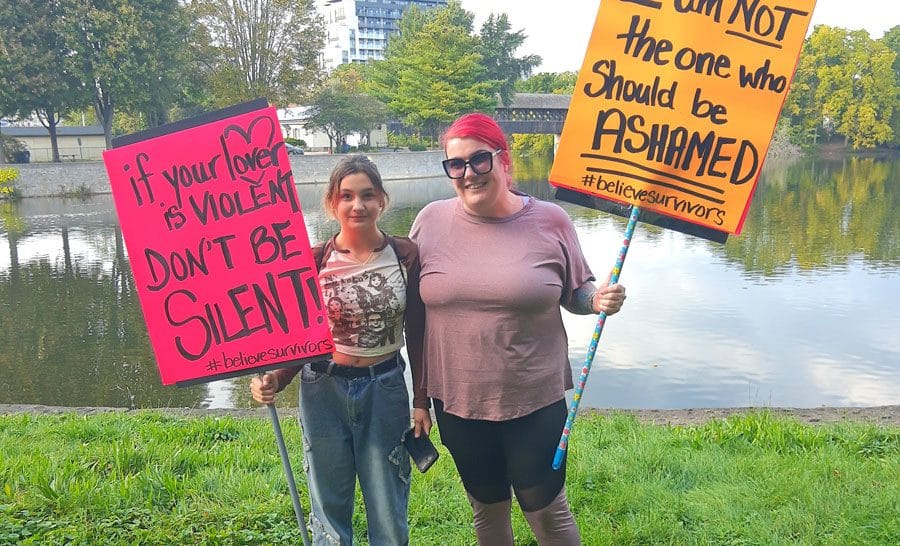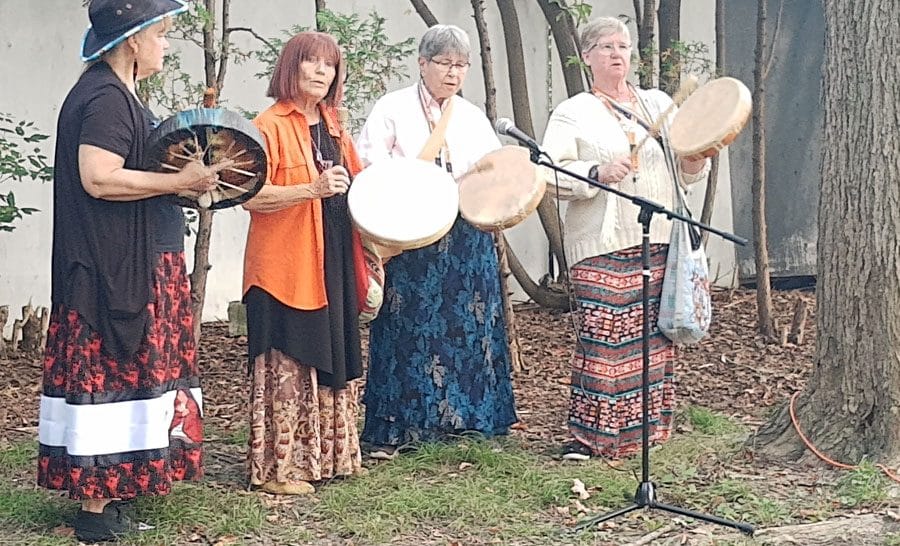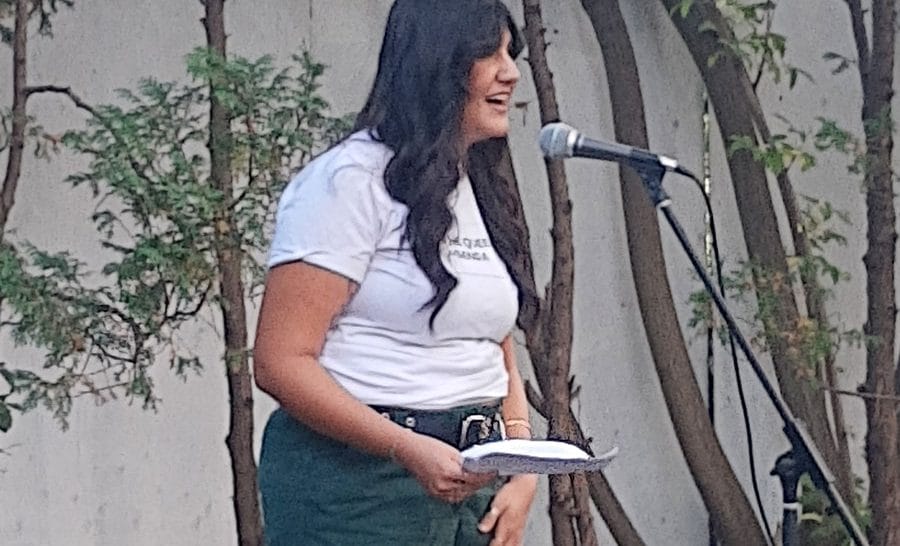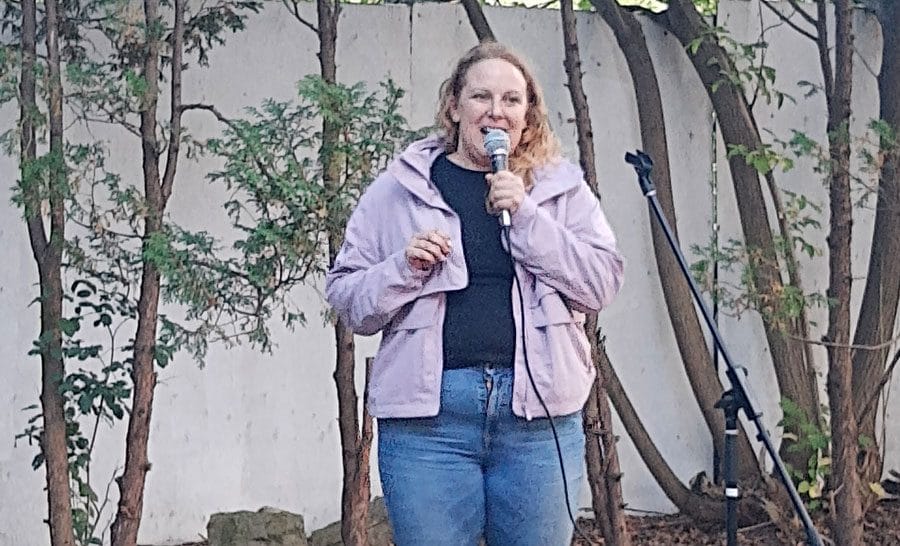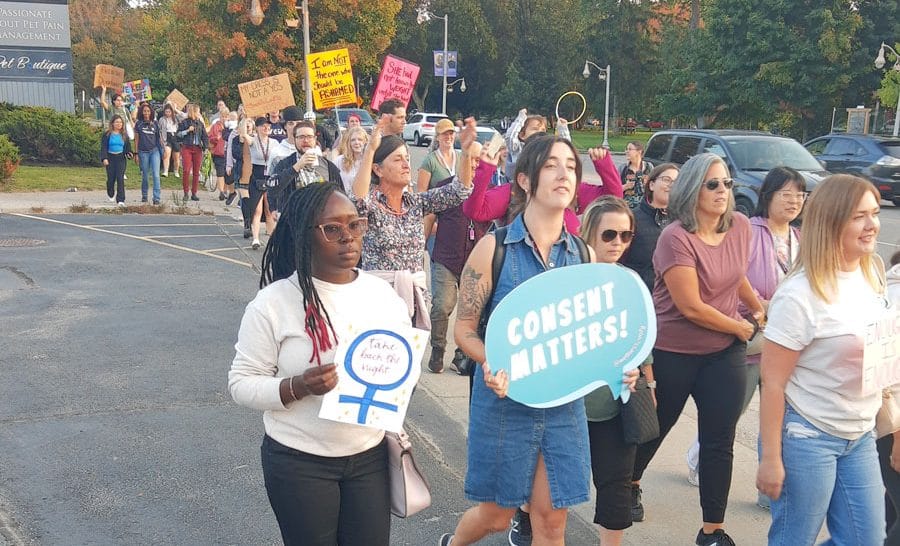GUELPH – After a demonstration outside Guelph City Hall on Sept. 20 between a group of parents protesting 2SLGBTQIA+ school policies and another group protesting the protest, the Take Back the Night (TBTN) march the next day took on extra meaning.
“Yesterday was a hard day for people. There are groups who don’t want us to thrive,” said Cindy McMann, public educator with Guelph-Wellington Women in Crisis, who organized the TBTN rally on Sept. 21.
The#1MillionMarch4Children group held demonstrations across the province on Sept. 20 to voice opposition to school policies around sex education, which they see as “indoctrinating” children.
The counter-protestors see that stance as a threat to 2SLGBTQIA+ students and called themselves No Hate in Guelph.
That demonstration is just another sign that governments have only paid lip service to the growing epidemic of intimate partner violence, McMann said.
And it’s the reason the theme of this year’s Take Back the Night march is “lead where you are,” she noted.
TBTN began as a protest against violence against women and has grown to embrace gender diverse people who are often victims of harassment and violence as well.
“Everybody has the right to live a life free of violence,” McMann said. “Think how you can lead where you’re at. No act of leadership is too small.”
Two guest speakers shared their experiences of violence and their journey to overcome the impact that had on their lives.
Nealob Kakar is a queer Afghan Canadian and a Social Practice and Transformation Change PhD student at the University of Guelph.
Her life experience led to her research interest – the ways racialized 2SLGBTQIA+ survivors practice care and mutual aid for one another.
She said her grandmother, her mother, her sister and herself are all survivors. That has made them resilient, “but sexual violence is engrained in my culture. It’s as if it’s an ordinary experience,” she said.
“I’m so tired of bearing the weight of resiliency. I’m tired of this multigenerational circle of harm. I’m tired of sitting in silence.”
Embracing the “lead where you are” theme, Kakar said ways to do that include keeping each other safe, calling out injustice and showing respect for each other.
“Colonial bodies of law, policy and policing don’t keep us safe,” she said.
The second speaker, Mandi Gray, is an activist, survivor and academic at Trent University who talked about the first TBTN rally she attended.
“It was 2006, I was 18 and it was so transformative for me,” she said.
“I finally understood what happened to me. I was no longer the one to blame. That was my own starting place.”
Gray said victims of violence need to understand how and why violence happens and that they are not responsible for other people’s actions.
TBTN is a safe space for survivors, she said. It’s a place to feel supported and loved. And it’s an opportunity for others to show they care.
“We’re still here and we have strength together,” Gray said. “They haven’t broken us yet.”
About 50 people gathered in Marianne’s Park for the speeches and then marched to St. George’s Square in downtown Guelph.
Some carried signs; some were chanting. Some were in wheelchairs; some were in strollers.
“We have to continue to be warriors,” said Jan Sherman, who’s part of an Indigenous singing group that opened the event.
“That takes great strength, courage and commitment.”





